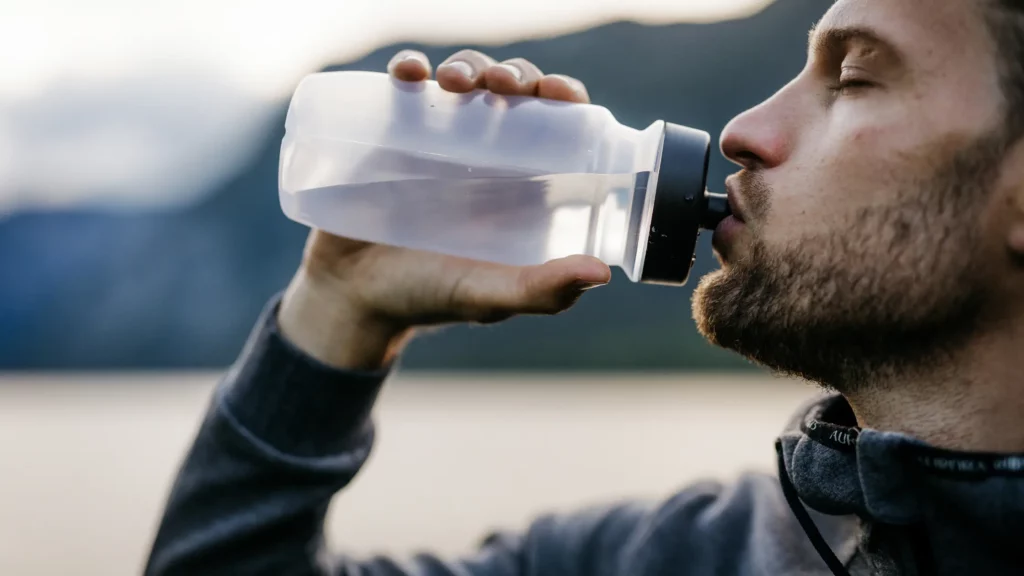What Research Says About Fitbit Calorie Burn
Research on the accuracy of Fitbit calorie burn estimates has shown mixed results. Some studies have found that Fitbit devices provide relatively accurate estimates of calorie burn, while others have found that they are less accurate.

One study published in the Journal of the American Medical Association found that Fitbit devices provided accurate estimates of calorie burn for low-intensity activities but overestimated calorie burn for high-intensity activities.
A review of several studies on the accuracy of Fitbit calorie burns estimates found that the devices generally provide accurate estimates for light and moderate physical activityhttps://badmintonstudio.net/ but may overestimate calorie burn for high-intensity activities.
Another study published in the Journal of Personalized Medicine found that Fitbit devices provided reasonably accurate estimates of calorie burn during both light and moderate physical activity.
However, the study also found that the accuracy of Fitbit calorie burns estimates decreased during high-intensity activities, such as running or cycling.

It’s important to keep in mind that the accuracy of Fitbit calorie burn estimates can be influenced by a variety of factors, including physical characteristics, type, and intensity of physical activity, environmental factors, and user input.
In conclusion, while research suggests that Fitbit devices can provide reasonably accurate estimates of calorie burn for light and moderate physical activity, their accuracy for high-intensity activities may be limited. As with any self-monitoring tool, it’s important to use Fitbit devices in combination with other forms of self-monitoring, such as tracking food intake and paying attention to physical sensations, to get a comprehensive view of your health and wellness.
Introduction
Fitbit devices have become a popular tool for tracking physical activity and monitoring health and wellness. From basic pedometer features to heart rate monitoring and GPS tracking,
Fitbit devices offer a wide range of features to help users track their daily activity and monitor their progress toward their fitness goals.

One of the key features of Fitbit devices is the ability to estimate the number of calories burned during physical activity.
However, the accuracy of these estimates is a topic of much debate and discussion among Fitbit users and health and fitness experts alike.
A. Overview of Fitbit Devices
Fitbit is a leading manufacturer of wearable fitness technology and offers a range of devices, from basic activity trackers to full-featured smartwatches.
All Fitbit devices use algorithms and sensors to estimate the number of calories burned during physical activity, as well as other metrics such as steps taken, distance traveled, and heart rate. These devices are designed to be worn throughout the day and provide users with a comprehensive view of their physical activity and health.
B. Importance of Tracking Calorie Burn
Calorie burn is an important metric for those who are looking to improve their physical fitness, lose weight, or simply track their overall health and wellness.

By estimating the number of calories burned during physical activity, Fitbit devices can help users better understand the impact of their daily activities on their health and fitness goals.
C. Purpose of this Guide
The purpose of this article is to provide a comprehensive review of the accuracy of Fitbit calorie burn estimates.
This review will cover the algorithms and sensors used by Fitbit devices to estimate calorie burn, the factors that can affect the accuracy of these estimates, and the limitations of Fitbit devices for tracking calorie burn.
The guide will also provide insights into the best practices for using Fitbit devices to track calorie burn and offer recommendations for future research.
How Fitbit Devices Estimate Calorie Burn
Fitbit devices use algorithms and sensors to estimate the number of calories burned during physical activity.
The algorithms take into account a variety of factors, such as the type and intensity of the activity, the individual’s physical characteristics, and the accuracy of the information entered into the device.

A. Algorithms Used by Fitbit Devices
Fitbit devices use advanced algorithms to estimate the number of calories burned during physical activity.
These algorithms take into account the type of activity being performed, the individual’s heart rate, and other factors to determine the intensity of the activity and estimate calorie burn.
The algorithms also consider the individual’s physical characteristics, such as height, weight, and body composition, to provide more accurate estimates of calorie burn.
B. Factors Affecting Accuracy of Calorie Burn Estimates
The accuracy of Fitbit calorie burn estimates can be influenced by a variety of factors, including the type and intensity of physical activity, the individual’s physical characteristics, and the accuracy of the information entered into the device.
Additionally, environmental factors such as hydration levels can also affect the accuracy of calorie burn estimates.
C. Role of Heart Rate Monitoring
Heart rate monitoring is a key factor in determining the accuracy of Fitbit calorie burn estimates.

By tracking the individual’s heart rate during physical activity, Fitbit devices can determine the intensity of the activity and estimate calorie burn more accurately.
However, it’s important to note that heart rate monitoring can be affected by a variety of factors, including hydration levels and the type of activity being performed, which can impact the accuracy of calorie burn estimates.
Factors Affecting the Accuracy of Fitbit Calorie Burn Estimates
There are several factors that can affect the accuracy of Fitbit calorie burn estimates, including:
A. Physical Characteristics
Individual physical characteristics, such as height, weight, and body composition, can impact the accuracy of Fitbit calorie burn estimates.

Different body types will burn calories at different rates, and the algorithms used by Fitbit devices may not take into account all the individual differences.
B. Type and Intensity of Physical Activity
The type and intensity of physical activity can also impact the accuracy of calorie burn estimates. For example, vigorous activities such as running or cycling will burn more calories than low-intensity activities such as walking.
Fitbit devices may not accurately reflect the intensity of different activities, leading to inaccuracies in calorie burn estimates.
C. Environmental Factors
Environmental factors, such as weather conditions and altitude, can also impact the accuracy of Fitbit calorie burn estimates. For example, high altitudes can affect the heart rate and oxygen levels of individuals, which can impact the accuracy of Fitbit calorie burn estimates.

The accuracy of Fitbit calorie burn estimates can also be influenced by the information entered into the device by the user.
For example, if the individual does not accurately enter their weight, height, or body composition into the device, the calorie burn estimates will be less accurate.
D. Your Body’s Basal Metabolic Rate
Your basal metabolic rate (BMR) is the amount of energy that your body needs to perform basic functions such as breathing, circulation, and cell production while at rest. This is often referred to as your “metabolic rate” and it is an estimate of the number of calories that your body burns in a day to sustain basic functions.

BMR is influenced by several factors, including your age, sex, weight, height, and muscle mass. In general, men have a higher BMR than women, and people with a higher muscle mass have a higher BMR than those with a lower muscle mass.
It’s important to note that BMR is different from total daily energy expenditure (TDEE), which takes into account all the calories you burn throughout the day, including those burned during physical activity and digestion.
Knowing your BMR can be helpful in determining an appropriate calorie intake for weight management. However, it’s important to remember that BMR is just an estimate and individual needs may vary. A professional nutritionist or dietitian can help you determine your specific calorie needs based on your personal circumstances.
Limitations of Fitbit Devices for Tracking Calorie Burn
Fitbit devices are a useful tool for tracking physical activity and monitoring health and wellness, but they have several limitations that can impact the accuracy of calorie burn estimates. These limitations include:

A. Limited Customization
Fitbit devices are designed to be used by a wide range of users, but the algorithms used to estimate calorie burn may not take into account all the individual differences in physical characteristics, such as body composition and physical fitness level.
B. Lack of Verification
Fitbit devices do not have the ability to verify the accuracy of their calorie burn estimates, so users must rely on their own observations and assessments to determine the accuracy of the estimates.
C. Limited Accuracy of Heart Rate Monitoring
Heart rate monitoring is a key factor in determining the accuracy of Fitbit calorie burn estimates, but the accuracy of heart rate monitoring can be limited by factors such as hydration levels and the type of activity being performed.
Best Practices for Using Fitbit Devices to Track Calorie Burn
While Fitbit devices have limitations, there are several best practices that can help users get the most accurate calorie burn estimates from their devices:
A. Enter Accurate Information

Users should enter accurate information into their Fitbit devices, such as their height, weight, and body composition, to ensure that the calorie burn estimates are as accurate as possible.
B. Track a Wide Range of Activities
Users should track a wide range of activities, from low-intensity activities such as walking to high-intensity activities such as running or cycling, to get a comprehensive view of their physical activity and calorie burn.
C. Hydrate Properly

Ensuring that you are hydrated properly can help improve the accuracy of Fitbit calorie burn estimates, as hydration levels can impact heart rate monitoring.
Final Observations
Fitbit uses a combination of sensors and algorithms to estimate the number of calories burned during physical activity. While Fitbit’s calorie burn estimates are generally considered to be fairly accurate, they can vary depending on a number of factors, such as:

- The user’s individual physiology and metabolism
- The specific activity being performed
- The intensity and duration of the activity
- The user’s age, weight, and height
Overall, Fitbit’s calorie burn estimates are based on a combination of activity data, heart rate data, and user input, and they are designed to provide a general sense of how many calories are being burned during physical activity. However, they may not be perfectly accurate for every individual in every situation.
It is also worth noting that while Fitbit’s calorie burn estimates can be a helpful tool for monitoring and managing overall physical activity, they should not be used as the sole basis for making major dietary or exercise decisions. Rather, it’s important to use calorie burn estimates in conjunction with other tools and resources to ensure a well-rounded and sustainable approach to health and fitness.
FAQs
How Does the Fitbit Calculate Calorie Burn?
Fitbit calculates calorie burn using a combination of factors, including heart rate, steps taken, active minutes, and user-entered information such as height, weight, and gender. The device uses algorithms to estimate the number of calories burned during physical activity, as well as the number of calories burned at rest (basal metabolic rate).
Why Are Fitness Trackers Inaccurate?
Fitness trackers can be inaccurate for several reasons. Factors that can impact their accuracy include the type and intensity of physical activity, environmental factors (such as temperature), user input (such as incorrect height or weight information), and the limitations of the device’s sensors.
How Does Fitbit Compare To Other Brands?
Fitbit is one of the leading brands in the fitness tracker market, offering a range of devices with different features and price points. Some other popular fitness tracker brands include Garmin, Jawbone, and Misfit. The accuracy of calorie burn estimates can vary between brands and between devices within a brand, so it’s important to consider individual needs and preferences when choosing a fitness tracker.
Are Fitbit Calories Burned Accurate?
The accuracy of Fitbit calorie burn estimates can vary, but research suggests that they provide reasonably accurate estimates for light and moderate physical activity. However, their accuracy for high-intensity activities may be limited.
How Does Fitbit Track Calories Burned?
Fitbit tracks calorie burn by using a combination of sensors, such as heart rate monitors, accelerometers, and gyroscopes, to measure physical activity. The device also uses algorithms to estimate the number of calories burned during physical activity and at rest (basal metabolic rate).
What Are Calories And Why Do They Matter?
Calories are units of energy that the body uses to perform physical and mental activities. They are important because they provide the body with the energy it needs to function, but consuming too many calories can lead to weight gain. Tracking calorie intake and burn can help individuals manage their weight and maintain a healthy lifestyle.
What Is The Most Accurate Calorie Tracker?
There is no one “most accurate” calorie tracker, as the accuracy of calorie tracking can vary between devices and brands. Some factors to consider when choosing a calorie tracker include the type and accuracy of sensors, user interface, and the level of support and resources provided by the manufacturer.
Is Fitbits Worth It?
Whether or not a Fitbit is worth it will depend on individual needs and preferences. Fitbits are popular and well-regarded fitness trackers that offer a range of features, including heart rate monitoring, sleep tracking, and calorie burn estimates. However, their accuracy may vary, so it’s important to consider individual needs and preferences when deciding if a Fitbit is worth the investment.





